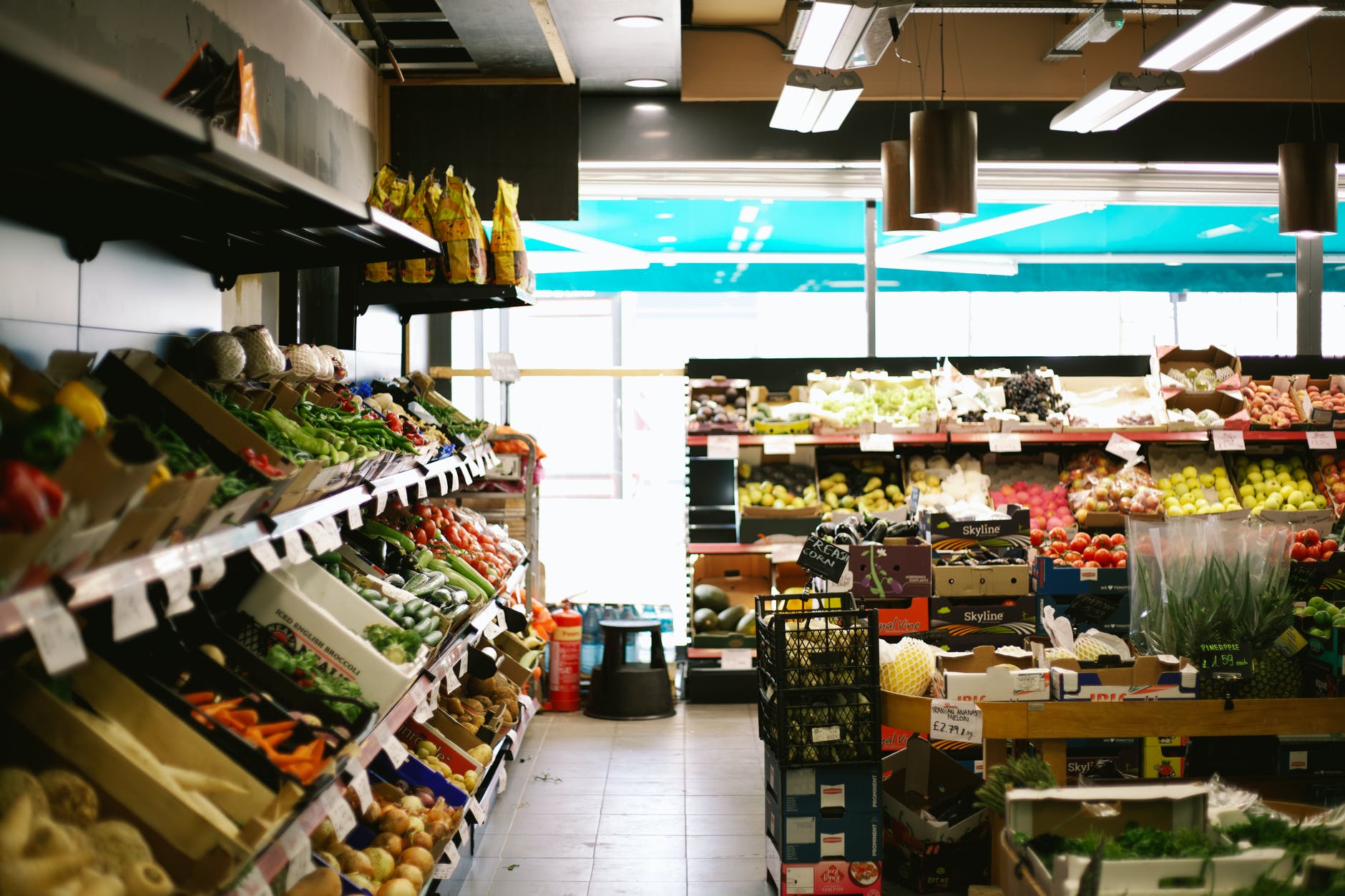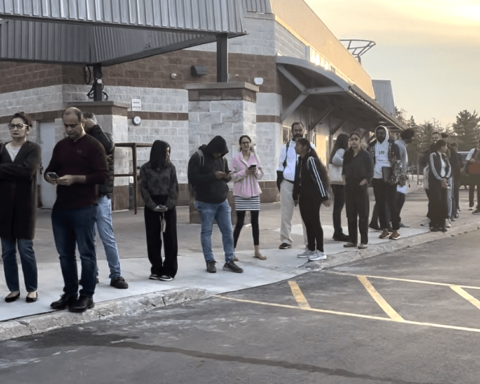At my neighbourhood grocery, I can buy food items from all parts of the world.
There are avocados from Mexico, shrimp from Thailand, oranges from South Africa, rice from Korea and spices from India.
The products lining our shelves are as much an expression of Canadian multiculturalism as the shoppers browsing them.
But this “diversity” of selection also speaks to the economics of globalism and the headway that the incessant “liberalization” of trade has made in re-shaping the world into one borderless marketplace. It has happened incrementally over the decades, with countries forging economic unions such as NAFTA, the EU and Trans-Pacific Partnership (TPP), where poorer and richer markets are cobbled together into single free-trade zones.
And within these zones, agribusinesses, among other multinationals, have profited mightily from these pacts, as products such as palm oil, soya and cocoa produced in the less regulated parts of the world can be sold for fat margins in richer markets.
This is an oversimplified story of the international agribusiness business model. But it bears enough truth to fuel the nightmares of the remaining vestiges of family farmers around the world, whether that be in Canada, the United States, the EU or in India, where currently tens of thousands of Punjabi farmers have driven their tractors into the capital New Delhi to protest against the government’s new business-friendly agricultural reforms.
Like Canada’s unhappy dairy farmers in 2015 who rolled up with their tractors to Parliament Hill to protest the impending TPP, India’s Punjabi farmers are concerned they will lose government protections (in their case minimum prices) that guarantee, if not a fair return, at least enough to keep their farms going into next season.
Currently, the Indian government sets price floors for a number of crops. It also buys much of the wheat and rice produced by farmers from Punjab and Haryana.
While this Punjab farmers’ protest may seem a very localized political issue half a world away, it isn’t as far removed from our shores as we may believe.
Canada Stands with Punjab’s Farmers
It has had an obvious and understandable impact on Canada’s three-million-strong South Asian community, which is concerned about India’s heavy-handed police response against unarmed Sikh farmers fending off water cannons, tear gas, barricades and police batons.
A significant cohort of Canadians of South Asian heritage hail from the Punjab region, with many being Sikhs who still have strong ties to these farming communities. The issue has galvanized the Punjabi-speaking diaspora across Canada, the U.S., and the U.K. to stand with the movement via the hashtag #IStandWithFarmersChallenge.
But ultimately in all of these global David-versus-Goliath flashpoints — whether they occur in Canada, India, France, Mexico or other countries — family farmers are making a last stand against the advances of deep-pocketed agribusinesses. From a market perspective, the scale of global agribusinesses can offer lower consumer prices. But this victory for the “efficiency” of the market is not without the hidden costs associated with industrial feedlots, monoculture, environmental degradation and the collapse of rural communities.
In the case of India, its agriculture sector employs about half of the country’s workforce. Meanwhile in Punjab, considered the breadbasket of the country, the average farm size is approximately nine acres. These smallholders, dotted across Punjab’s 12,000 villages in a state roughly the size of Nova Scotia, anchor a traditional and self-sufficient way of agrarian living that is centuries old.
India’s BJP administration, led by Prime Minister Narendra Modi, is seeking to change this. It has taken on a very politically sticky task of agricultural reforms with the ambition of transforming the country into an agribusiness hub and net food exporter. So it is legislating access for large agro companies to contract and buy directly from the country’s small farmers instead of via a network of established local wholesalers.
The family farmers, however, are fearful that these deep-pocketed agro businesses will drive the wholesalers out of business or find a way such that, in the long term, they can drive down prices such that small parcel holders have to abandon their livelihood.
Canadian Prime Minister Justin Trudeau expressed solidarity with the farmers’ right to protest when speaking this week on the birth anniversary of Guru Nanak Dev Ji, the founder of the Sikh religion. Trudeau called the protests a “concerning” situation.
“We’re all very worried about family and friends,” said Trudeau via a virtual call. “We believe in the importance of dialogue, and that’s why we’ve reached out through multiple means directly to the Indian authorities to highlight our concerns.”
Conservative Leader Erin O’Toole also backed the farmers, saying the right to peacefully protest is “fundamental” to democracy.
India’s foreign ministry responded by calling the comments by the Canadian leaders “ill-informed.”
Via the growth of new pacts such as the Trans-Pacific-Partnership that may see new life with the coming Biden administration, or via the currently stalled Canada-India free-trade agreement, our trade relations with Indian will grow. It is impossible to ignore a consumer market of greater than a billion people.
And in that budding relationship, it’s not difficult to conceive of Indian agribusinesses becoming a net exporter of rice, cereals and other foodstuffs to countries such as Canada. And as food prices drop in India, our own exports of lentils and yellow peas to India will likely fall. India is currently Canada’s biggest export market for pulses.
Perhaps there are some market-efficiency and re-allocation-of-resources arguments to be made in favour of all this. But for all the resistance India’s small farmers are putting up and the community displacement costs associated with such “reforms,” it’s hard to square it with the few dollars a family may or may not save on their grocery bill. And it will be wholly unjustifiable if, in the long run, our own supply-management system comes under threat to create fair trading conditions with our partners such as India.
This may all seem far-fetched and conjecture, but three decades ago it would have also seemed inconceivable that North American service and manufacturing jobs would be sent offshore to Asia. So then why should agriculture not also be outsourced?
Punjab’s smallholder Sikh farmers are pushing back to protect their own interests. But they also are ultimately making a stand for all remaining family farmers across the globe.
And we would be best served to recognize that before turning away from what otherwise seems just another regional squabble.
Jagagdeesh Mann is a Vancouver-based entrepreneur and a founding partner of the Asian Pacific Post, a Jack Webster Award–winning publication. His work has been published by the Toronto Star, the Georgia Straight, the Globe and Mail, the CBC, and Canadaland.





GREAT to see this the Sikh people deserve their own homeland back. they have been suffering thru an unheard genocide for decades by the Hindustan govt & ppl
India has NO REAL MSP ! Only 2 crops have a MSP and that is also only for PRIME material.As charity the GOI buys the Non Prime also.
Then they mix the Prime and Non Prime and GIFT it under the PDS to the POOR
The GOI claims to have a MSP – a Minimum Support Price,for just 2 crops,in some states of India – with no minimum offtake per farmer,and with a cap,on the overall value,of procurement. This has been on for 73 years.
In the early years,India had a food shortage – and so,the con workked.Then the surpluses began ! dindooohindoo
The aim of the GOI was to PUSH the farmers to OVERPRODUCE,with 3 benefits for the GOI and their cohorts
Sufficient Foodgrain Reserves
Sufficient foodgrains for PDS
Excess supply pressures on price reductions and reducing the bargaining capacity of farmers – which is ONLY to help the agri value chain
By overproducing,the farmers are only KILLING themselves – as higher stocks,no storage,i nterest on loans and poor quality etc.,increases the pressure on the farmers,to liquidate stocks and accept the quality grading system of the arhatiyas.
When a state in India has a AGRI shortfall it raises the MSP (As there is not enough procurement),and when farmers from o/s states come to dump their wheat – the state refuses.The local farmers see the current MSP and then,overproduce in the next year – and then,the MSP is lowered by the State ! This comedy has been on,for decades.
In essence,India is a bankrupt nation and cannot do 100% purchases of EVEN 1 crop on MSP,in EVEN 1 state of India.
Y don’t the FARMERS do not GET THIS ?